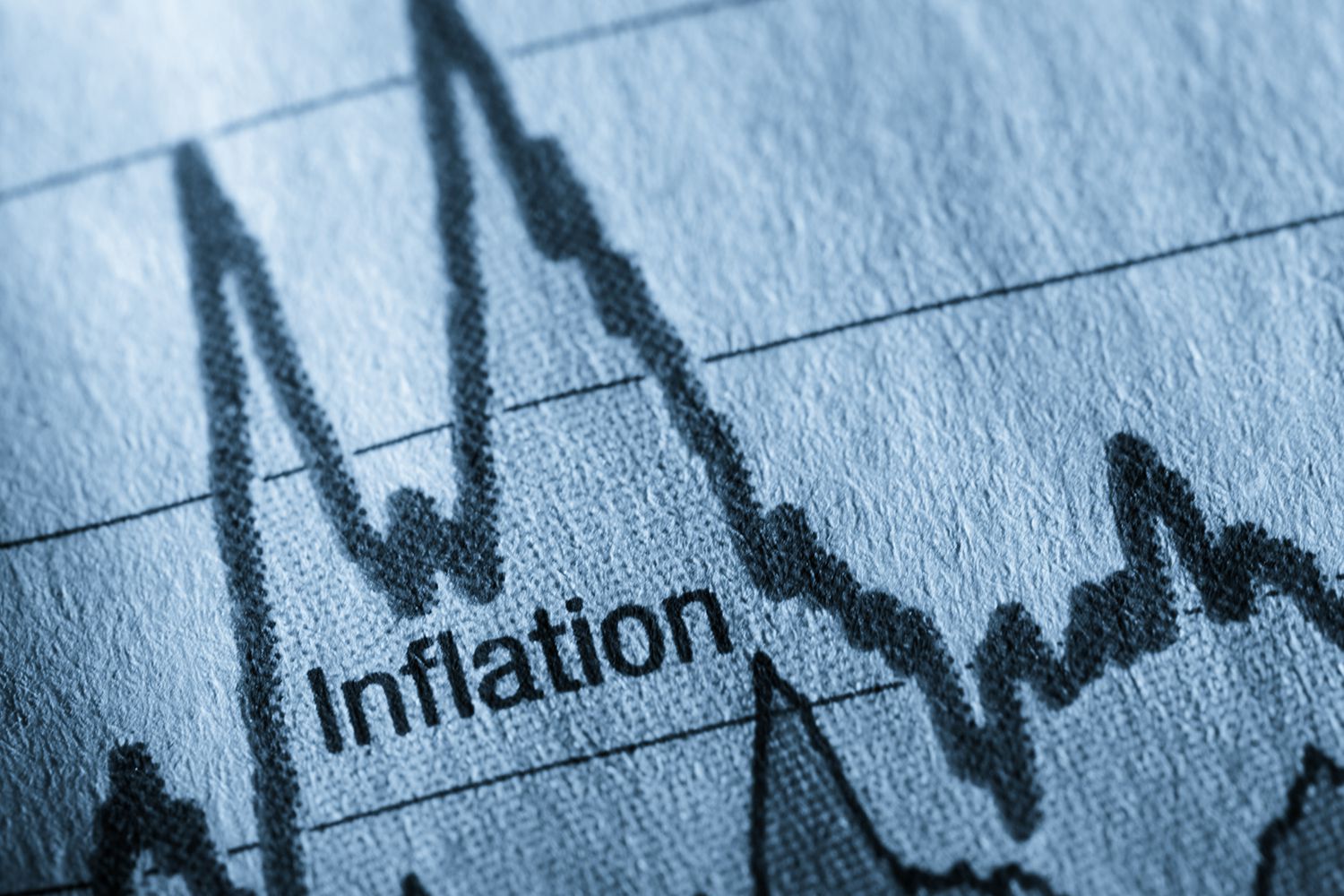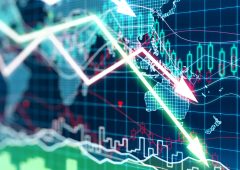Inflation Data Next Week Could Be Crucial for Federal Reserve Rate Decision
26.08.2024 10:00 2 min. read Alexander Stefanov
This week’s release of new inflation data is expected to make waves, potentially influencing the Federal Reserve’s decision on interest rates.
Economists are closely watching, as this data might push the Fed towards rate cuts.
The core inflation gauge used by the Fed, which excludes volatile food and energy prices, is anticipated to show a 0.2% increase for July. This is the second month in a row that this modest rise is projected.
Core inflation, when annualized over the past three months, is forecasted to drop to 2.1%. While this is still slightly above the Fed’s target of 2%, it’s close enough to spark speculation about potential rate reductions.
In addition to inflation figures, consumer spending data will be in focus. Expected to rise by 0.5% in July, this increase is the largest seen in four months. Healthy consumer spending is a positive sign, indicating that the economy is not in trouble and is crucial for the Fed’s economic strategy.
Fed Chair Jerome Powell hinted at the Jackson Hole symposium that a policy shift might be on the horizon. He expressed increased confidence that inflation trends are heading in the right direction.
With inflation concerns easing, the Fed is now turning its attention to the job market, balancing its dual focus on inflation and employment. Powell outlined that the Fed’s immediate goals include stabilizing the economy and analyzing past policy challenges.
Powell also acknowledged the limitations of their knowledge during the pandemic and stressed the need for continued learning from past experiences as the Fed prepares for its first detailed review since the inflationary spike during the pandemic.
-
1
Economic Instability and Political Shift Fueling Bitcoin’s Rise – Galaxy Digital CEO
23.05.2025 12:00 2 min. read -
2
Trump Renews Attack on Fed Chair, Calls for Immediate Rate Cuts
18.05.2025 8:00 1 min. read -
3
Japan’s Inflation Hits 3.5% as Food Prices Soar and Tariff Risks Loom
23.05.2025 21:00 1 min. read -
4
US Dollar Dominance Under Threat Amid Yuan’s Global Ambitions
22.05.2025 14:00 2 min. read -
5
Wall Street Analyst Sees Bright Side of Ballooning U.S. Debt
30.05.2025 8:00 2 min. read
Tariffs Threaten to Stall U.S. Growth in 2025, Recovery Not Expected Until 2026
The U.S. economy may be closer to a downturn than many realize, according to Jay Bryson, chief economist at Wells Fargo.
Dollar Faces Deep Decline as Fed Cuts Pressure Currency, Warns Morgan Stanley
Morgan Stanley has issued a cautionary outlook on the U.S. dollar, predicting a major decline over the coming year as Federal Reserve rate cuts take hold.
Trillions in Debt Payments Could Break U.S. Economy, Ray Dalio Predicts
Legendary investor Ray Dalio has issued a stark warning about the trajectory of U.S. government finances, suggesting the country is drifting toward a series of severe economic shocks unless its debt spiral is urgently addressed.
Wall Street Veteran Warns Tariffs Could Disrupt AI-Driven Market Rally
Steve Eisman, the famed investor known for forecasting the 2008 housing collapse, is sounding the alarm—not on overvalued tech stocks or interest rates, but on the escalating risk of global trade disputes.
-
1
Economic Instability and Political Shift Fueling Bitcoin’s Rise – Galaxy Digital CEO
23.05.2025 12:00 2 min. read -
2
Trump Renews Attack on Fed Chair, Calls for Immediate Rate Cuts
18.05.2025 8:00 1 min. read -
3
Japan’s Inflation Hits 3.5% as Food Prices Soar and Tariff Risks Loom
23.05.2025 21:00 1 min. read -
4
US Dollar Dominance Under Threat Amid Yuan’s Global Ambitions
22.05.2025 14:00 2 min. read -
5
Wall Street Analyst Sees Bright Side of Ballooning U.S. Debt
30.05.2025 8:00 2 min. read


